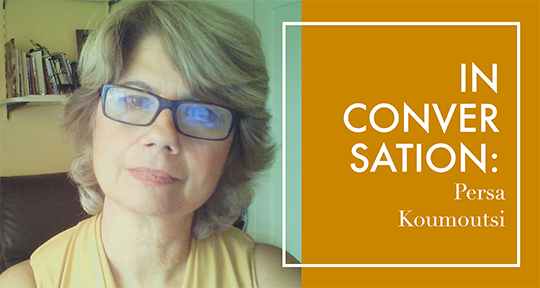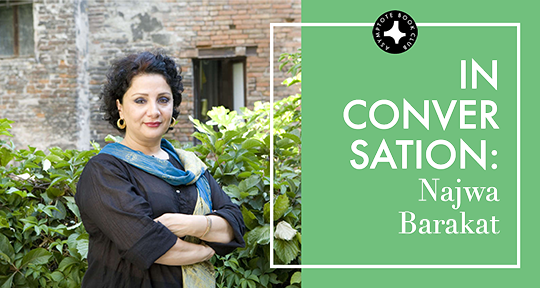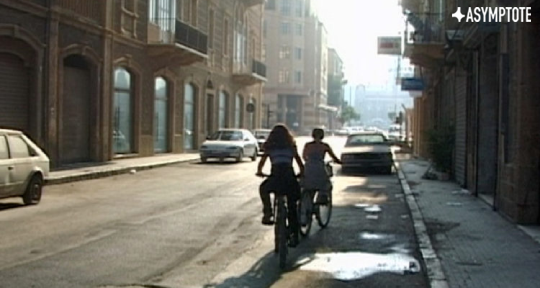Born and raised in Cairo, Persa Koumoutsi is a literary translator and a writer. Having returned to Greece after completing her studies at the Faculty of Arts at Cairo University, she began focusing solely on translating Arabic literature into Greek in 1993. She has since worked on the works of many distinguished authors, including fourteen novels by the Nobel Prize-winning Egyptian author Naguib Mahfouz, as well many Arab poets. Her bibliography includes the first Anthology of Contemporary Arabic Poetry in Greek, for which she received the First Prize of the Hellenic Society of Literary Translators in 2017. Among her other works, the Αnthology of Modern Arabic Female Poetry was also widely lauded in 2022. She has also published the Αnthology of Palestinian Poetry and the Anthology of Egyptian Poetry.
In this interview, originally conducted in Greek, I spoke with Persa about the renewed interest in Palestinian literature in times of genocide, the importance of translation as a means to make struggles known and build solidarities beyond human borders and language barriers, prison literature, as well as the future of Arabic translation in Greece. The latter concerns not solely translation for the sake of itself, but as a powerful tool to bring forth voices of those marginalized.
Christina Chatzitheodoru (CC): Since October 7 and the ongoing genocide, several young Arab writers and poets have been translated into Greek, including your recent translation of Najwan Darwish. There is a renewed interest in Palestinian literature in particular. Can you tell us more about this?
Persa Koumoutsi (PK): Of course there is a renewed interest, not only in Greece but all over the world, especially in Europe. The tragic events in Gaza have brought to the fore an unspeakable tragedy, and thus many of my colleagues and translators around the world—and in Greece—have devoted themselves to translating works that highlight this problem and its dimensions, as well as its impact on our collective and individual consciousnesses—especially those of whom are concerned with contemporary Arabic culture and its literature. One such work is a collection by the renowned Palestinian poet Najwan Darwish entitled, in Greek, I Kourasi ton Kremasmenon (Exhausted on the Cross), which, as the title suggests, alludes to the enduring pains of the Palestinian people, the irredeemable trauma, and the grievous injustice they have been inflicted upon them. Poetry, in my opinion, is the most powerful literary genre in these cases, since everything can be said and highlighted through the condensed word of poetry. . .
CC: The Palestinian writer and revolutionary Ghassan Kanafani once stated: “My political position springs from my being a novelist. In so far as I am concerned, politics and the novel are an indivisible case, and I can categorically state that I became politically committed because I am a novelist, not the opposite.” How does this view relate to your own approach to translation? READ MORE…



